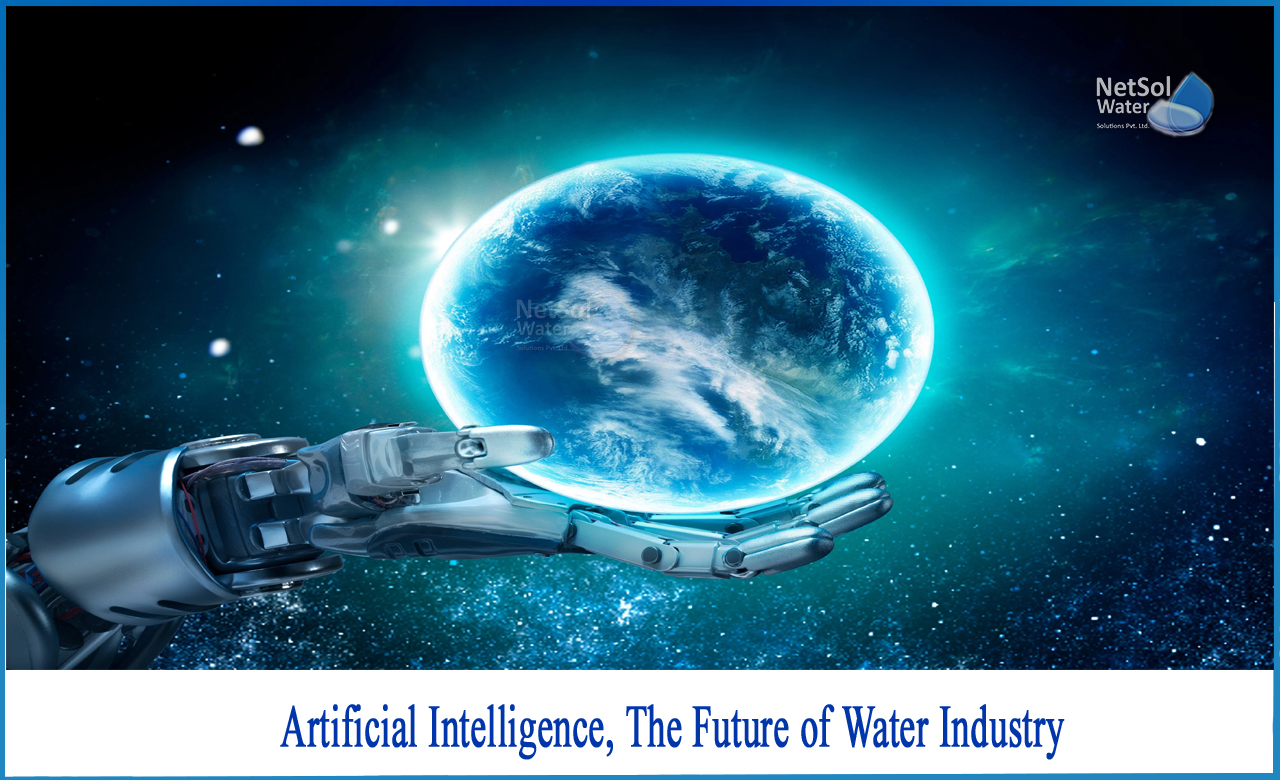What is the future of artificial intelligence in Water industry?
The water business is seeing the impact of artificial intelligence (AI). It is used to fuel intelligent operations that use machine learning to optimise resource utilisation and operational budgets for businesses, as well as to create fully intelligent constructed water systems.
Artificial Intelligence (AI) is no longer a foreign phrase. It is the most recent buzzword in the realm of technology, and it is redefining a variety of industries. ‘AI’ allows a computer, a computer-controlled robot, or software to reason in the same way that people do.
AI has also found a niche in the water industry. Artificial intelligence (AI) is regarded as the water industry's future, with the ability to play a critical role in making existing water infrastructure more reliable, profitable, and safe.
Artificial Intelligence: The future of water industry
1: Artificial intelligence (AI) will be the driving force behind a decade of technological investment in water and wastewater operations.
Artificial intelligence is being used in water and wastewater systems (AI). According to recent market study, Rs. 6.3 billion will be invested in AI solutions by 2030. This investment is part of a growing trend in the water industry to use smart infrastructure technologies to "get digital."
2: AI will save water and wastewater operations a lot of money in terms of OPEX.
When Indian utilities spend Rs. 3000 per customer per year on water and wastewater operations, there is a lot of room for savings. By decreasing energy expenses, improving chemical use for treatment, and enabling proactive asset maintenance, AI can save 20-30% on operational expenditures (OPEX).
3:AI will be able to predict and learn from critical situations at a faster rate.
Utilities pay a high price for water main breaks, both financially and socially.AI and machine learning can "fingerprint" data patterns that suggest an impending break event and learn from them over time, making alarms more accurate.
4: AI will support operators with superior decision-making intelligence.
Operators are no longer required to assess complex factors on their own in order to make critical decisions. AI empowers the Operator 2.0 - empowered by intelligent recommendations driven by machine learning – whether it's turning pumps on or off, determining chemical dosages, or deciding when to maintain assets.If a chemical tank has to be refilled, the operator will be notified via SMS, and if inventory needs to be replenished, forecasts will be sent to procurement workers. Managers and administrators will receive an automatic email detailing the previous day's operations and costs. Any of their functioning facilities can provide live data on things like net water output, energy usage, and earnings.
5: Artificial intelligence will optimise the usage of energy in water and wastewater operations.
Energy usage accounts for 25-30% of total operating and maintenance (O&M) expenses. Pump runtimes can be optimised using AI so that energy is only used when it is required. For many early AI adopters, this is an immediate cost-cutting win.
6: Artificial intelligence will keep water clean at a low cost.
Many companies, both public and private, are required to meet effluent compliance regulations. Artificial intelligence (AI) learns from your site's specific characteristics to ensure that effluent regulations are fulfilled and that compliance fees are avoided.
7: AI will make data integrity easier.
The growth of data available to water operations managers has created a data management dilemma. SCADA systems, CMMS, and even social media can help you optimise your operations. This heterogeneous data can be processed by AI to make it clean, valuable, and safe, and it can be used to make high-fidelity suggestions.
Anticipating many aspects of water infrastructure necessitates complicated computations that are beyond the capabilities of people.When it comes to operations like integrations, derivatives, parametric model fits, and multivariate statistics, computers can be extremely useful.
8: Artificial intelligence will keep institutional knowledge.
How do you make sure that a seasoned operator's essential knowledge is passed down after they retire?
Institutional knowledge will be documented and standardised thanks to AI-powered dashboards.
9: Artificial intelligence will hasten the transition to value-based asset maintenance.
Early AI adopters are rapidly abandoning reactive asset maintenance. Time-based maintenance is simple to administer, but it causes unnecessary downtime and degradation.
10: Artificial intelligence (AI) will be at the heart of really smart water systems.
The path to AI adoption enables enterprises to seek data-driven, intelligent water system management.The end result is long-term water management that is robust, sustainable, and cost-effective.
What can Netsol Water offer?
Netsol Water is a significant water and wastewater treatment firm in India, offering WTP, WWTP, STP, and ETP manufacture, among other services. We've made it our mission to save the planet. The company creates equipment’s and is committed to providing practical solutions that help businesses flourish.
Netsol Water is Greater Noida-based leading water & wastewater treatment plant manufacturer. We are industry's most demanding company based on client review and work quality. We are known as best commercial RO plant manufacturers, industrial RO plant manufacturer, sewage treatment plant manufacturer, Water Softener Plant Manufacturers and effluent treatment plant manufacturers. Apart from this 24x7 customer support is our USP. Call on +91-9650608473, or write us at enquiry@netsolwater.com for any support, inquiry or product-purchase related query.



